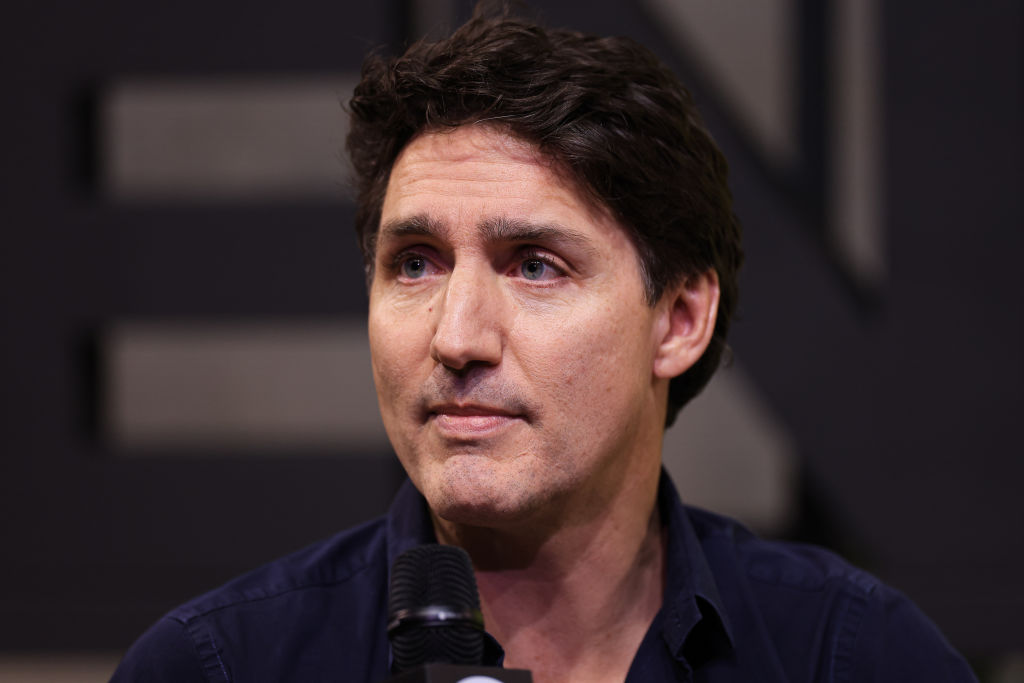More than any policy achievement, Justin Trudeau will likely be remembered more for his remarkable feat of clinging to power so tenaciously and for so long with only the flimsiest threads of political support
This week, the last threads finally snapped when longstanding ally Finance Minister Chrystia Freeland, who is also Deputy Prime Minister, announced that she was quitting the cabinet. Freeland used the occasion of the Fall Economic Statement to instead deliver a stinging rebuke of her boss in a resignation letter that accused him of “costly political gimmicks, which we can ill afford”. This was in reference to Trudeau’s plan to cancel sales taxes and hand out $250 cheques for Christmas, widely criticised as a crass vote-buying scheme that would sink the country’s finances and leave it more vulnerable to the effects of a looming tariff war with the US.
In any event, Freeland’s salvo managed to unmask yet more discontent from the Liberal caucus, as dozens more government MPs signalled their anger at the leadership. Unlike his response to the last attempt at a revolt in October, Trudeau appears to recognise that the pressure to step down is more severe than ever before. As if to underscore his unpopularity, the Liberals also lost a by-election in British Columbia on Monday.
The Prime Minister seemed to survive the Margaret Thatcher-like sudden death scenario many observers were predicting — with Freeland, of course, playing the role of Geoffrey Howe. Instead of resigning, Trudeau merely indicated that he understood his MPs’ concerns and would contemplate his future over the holidays. Since no other party was able to bring forth a no-confidence vote in the last day before the Christmas recess, he gets to stay on until parliament resumes on 27 January, after which he is almost certain to face his downfall.
Commentators took to social media and the editorial pages to express their disapproval at the thought of a tired government with no credibility staying on long enough to confront the existential economic threat of a second Trump administration, whose 25% tariff threat against Canada remains on the table. This also poses the larger question of who will fill the power vacuum once Trudeau is gone. While Freeland resigned from cabinet, she made clear that she is staying on as a Liberal MP and intends to contest her seat at the next election. Inevitably, this led to speculation that she has ambitions of succeeding Trudeau as party leader and potentially as prime minister, pre-emptively edging out fellow contender Mark Carney.
A Freeland-led government would probably mean a more confrontational approach to Donald Trump. In her letter, she urged the government to push back against his “America First economic nationalism”, possibly hewing closer to Mexican President Claudia Sheinbaum who has been less conciliatory than her Canadian counterpart. For his part, Trump has started to troll both Trudeau and Freeland, referring to the former as “Governor” and calling out the latter for “totally toxic” behaviour. He added: “She will not be missed!!!”
Yet the prospect of an early election would, even with a new Liberal leader at the helm, probably deliver victory to the opposition Conservatives under Pierre Poilievre, opening up a new and as yet unknowable dynamic between the Canadian and American leaderships. While one could bank on a certain degree of alignment between two Right-wing leaders, the fundamentally divergent economic interests of the two North American nations — at least as Trump interprets them in his ruthlessly zero-sum view of the world — would suggest that an era of heightened risk and uncertainty would persist in bilateral relations. Things may not be wildly different under Prime Minister Poilievre.











Join the discussion
Join like minded readers that support our journalism by becoming a paid subscriber
To join the discussion in the comments, become a paid subscriber.
Join like minded readers that support our journalism, read unlimited articles and enjoy other subscriber-only benefits.
Subscribe